According to a 2022 UNESCO report, which remains the most recent, there are 244 million out of school children (6 to 18 year olds) worldwide. Africa accounts for the highest number with 98 million children of school age out of school, followed by Asia with 85 million. Nigeria leads the table with over 20 million out of school children, a staggering 10% or so of its entire population. West and Central Africa account for almost a quarter of the total number worldwide with 58 million. All these may sound like mere figures, until someone spells out the implications. And Maureen Magee, Regional Director for the Norwegian Refugee Council (NRC) in Central and West Africa brought the implications home with ample clarity when she said, “every child out of school, every day of learning lost, is one brick fewer to build peace and prosperity in the region.” That sadly, is the simple truth.
In an effort to ameliorate this situation in several regions of the world but particularly in Africa, Rebecca Stromeyer, the multilingual and multicultural German-Australian, and globally recognised leader in the field of digital learning, EdTech and international education, established what has come to be known as perhaps the leading e-learning outfit in Africa. Driven by a burning desire to see our world become a more just one, and recognising education as a primary tool to make this reality, she founded eLearning Africa, which is positively shaping the future of education and skills development across the continent. Curious to know what motivates her tireless effort, EduTimes Africa sought an audience with her and was glad that it was granted.

What are the advantages of e-learning and how have African societies benefited from it?
E-Learning presents several advantages across different sectors of education, training and skills development, offering transformative potential for African societies. These benefits span from K-12 and higher education to vocational training, workplace L&D, sector specific knowledge exchange as well as lifelong learning. However, the impact of e-learning in Africa is nuanced by challenges such as limited access to devices as well as infrastructure challenges such as affordable and qualitative internet access, and electricity. Despite these barriers, innovative solutions have been implemented to leverage e-learning effectively.
Some advantages of e-learning are:
1. Flexibility and Accessibility: e-learning breaks down geographical barriers, making education accessible to those in remote or underserved areas. This flexibility allows learners to access educational content at any time, catering to those who might need to balance education with other responsibilities.
2. Cost-Effectiveness: E-Learning can be more cost-effective than traditional classroom settings, reducing the need for physical materials, transportation, and infrastructure.
3. Personalised Learning: Digital platforms offer customised learning experiences, enabling learners to progress at their own pace and according to their personal learning styles.
4. Scalability: E-Learning platforms can reach a large number of learners simultaneously, making it easier to scale educational and training programmes across regions.
5. Continuous Learning: E-Learning facilitates lifelong learning and professional development, essential in today’s fast-evolving job market.
The benefits to African Societies across the different education and training sectors are, as follows:
K-12 Education: Innovative solutions, such as solar-powered learning devices and radio or television broadcasts of educational content, have been utilised to overcome the lack of internet and electricity. These approaches have allowed primary and secondary education to reach wider audiences, improving literacy rates and educational outcomes in rural and underserved communities.
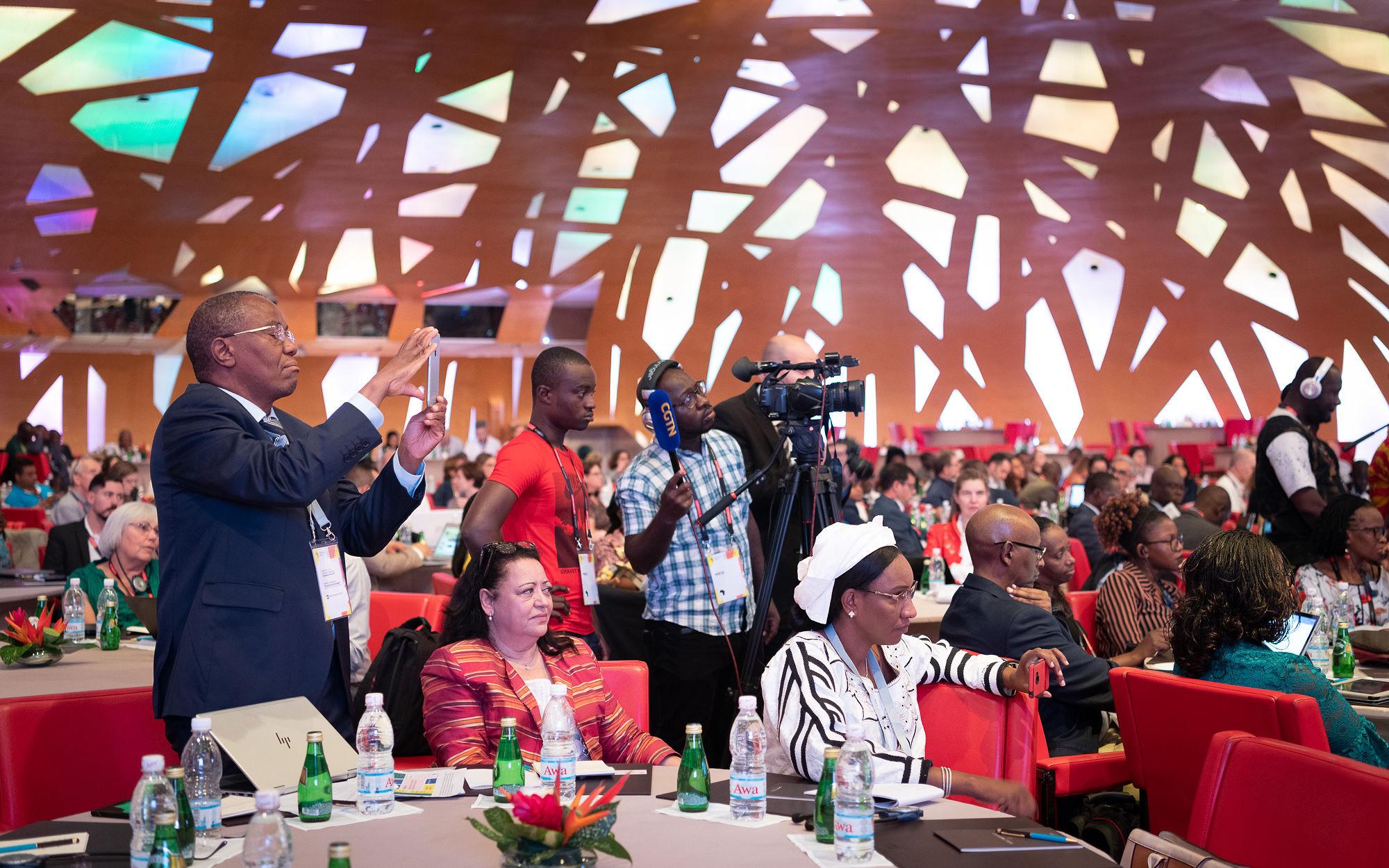
Higher Education: Universities and colleges have adopted blended learning models, combining online education with traditional methods. This approach has expanded access to higher education, especially for students in remote areas or those unable to access full-time, campus-based education. It has also enabled higher education institutions to purchase aggregated online courses from leading universities worldwide, further enriching the curriculum and offering students access to a diverse range of high-quality educational content.
Technical and Vocational Education and Training (TVET): Many TVET programmes across Africa are embracing innovative educational technologies, including immersive learning experiences. Through the use of virtual reality (VR) and augmented reality (AR), TVET institutions can offer hands-on training that simulates real-world environments and scenarios. This approach not only enhances the learning experience but also prepares students more effectively for the demands of the job market by providing practical skills and knowledge applicable in various industries. Immersive learning in TVET has proven especially beneficial in fields requiring specialised technical skills, from manufacturing and construction to healthcare and agriculture, bridging the gap between theoretical knowledge and practical application.

Workplace Learning: In the context of workplace learning, African organisations are leveraging e-learning platforms to facilitate continuous professional development and upskilling of their workforce. These platforms offer flexible, accessible and cost-effective training options that employees can engage with at their own pace, accommodating diverse learning needs and schedules. E-Learning in the workplace supports career advancement, helps address skill gaps, and aligns workforce capabilities with evolving industry requirements, contributing to organisational growth and competitiveness.
Despite the ongoing challenges posed by disparities in technology and infrastructure access, e-learning has significantly broadened educational opportunities across Africa. The continent’s creative solutions to these obstacles have not only promoted the sustained embrace of e-learning but have also highlighted the resilience and adaptability of African societies in using technology for educational progress.
In response to the digital divide, numerous African initiatives have adopted low-tech approaches to deliver e-learning content. Examples include utilizing SMS-based quizzes and lessons to supplement learning and distributing solar-powered tablets filled with educational materials. Moreover, community learning centers featuring solar-powered computers offer communal access to e-learning resources. These innovative responses demonstrate a commitment to overcoming barriers and expanding educational access through technology.
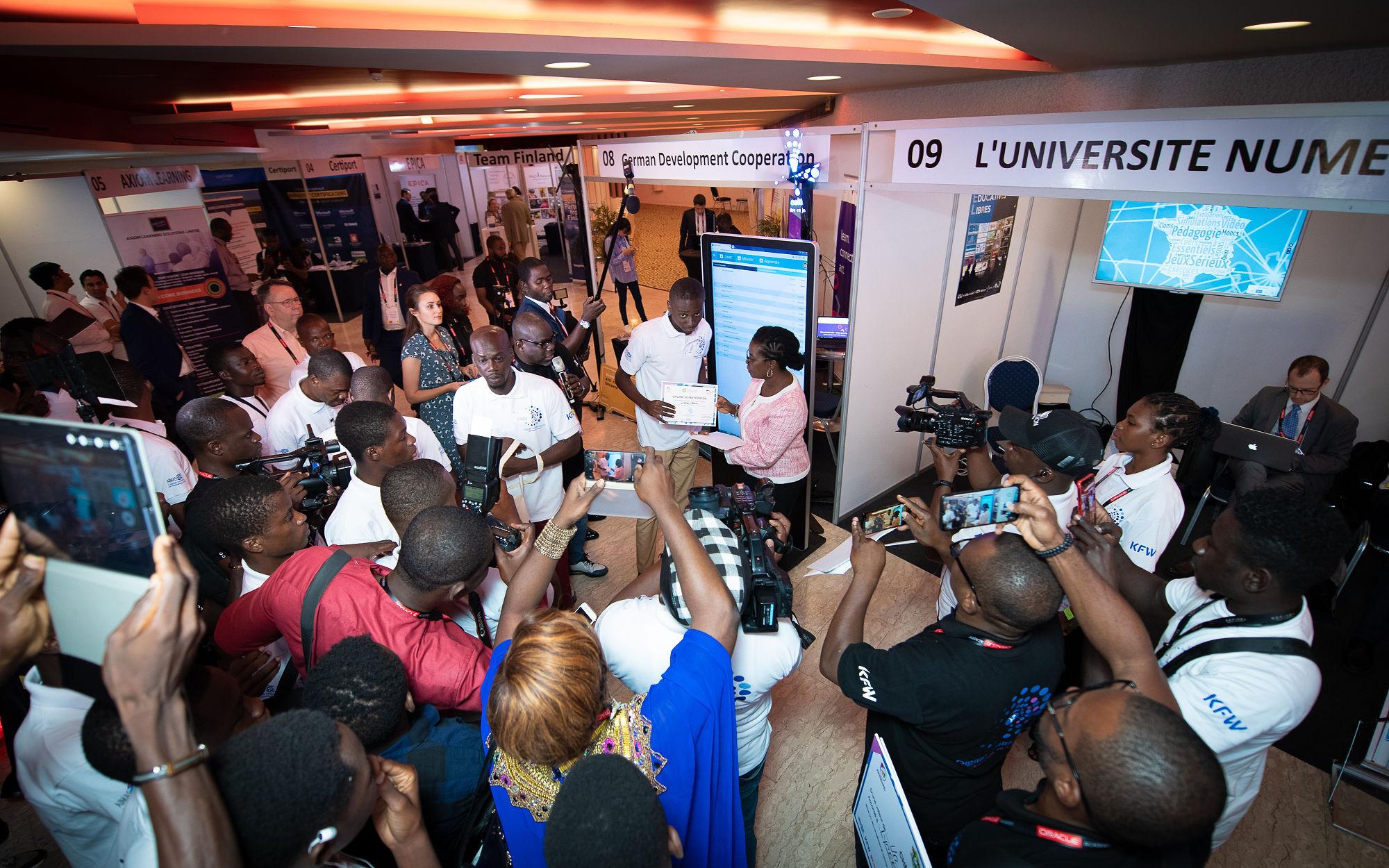
Nigeria holds the unenvious record of having the greatest number of out-of-school children in the world, reportedly over 20 million. Do you think e-learning can help to reduce these numbers? If yes, how?
While e-learning may not directly reduce the numbers of out-of-school children in Nigeria, it provides an indispensable alternative path to education to reach those not served by traditional schools.It can offer essential educational opportunities by harnessing the tools and platforms available with the wider involvement of different stakeholders including parents and communities together with supportive policies. This approach emphasises extending educational opportunities to children who lack access to traditional schooling, including early school leavers. By harnessing the tools and platforms available, and involving a broad spectrum of stakeholders, including parents and communities, alongside supportive policies, providing a cost-effective alternative to traditional schooling by reducing the need for physical infrastructure, and offering flexible learning environments. These environments can be designed to accommodate children’s varying circumstances, ensuring that education is accessible to all, regardless of their situation. Engaging multimedia content captivates students, while the development of targeted educational programmes – covering literacy, numeracy, vocational training, and life / job skills— addresses the diverse educational needs of children both inside and outside the school system.
Additionally, community learning centers equipped with internet and solar-powered devices are crucial for those without personal access to technology, serving as accessible points for e-learning engagement.
Overcoming implementation challenges such as limited electricity, internet connectivity, and device availability requires comprehensive strategies, including infrastructure investment, and device provision for low-income families. The creation of e-learning content that is contextually relevant and available in local languages is essential to enhance engagement and comprehension among learners.
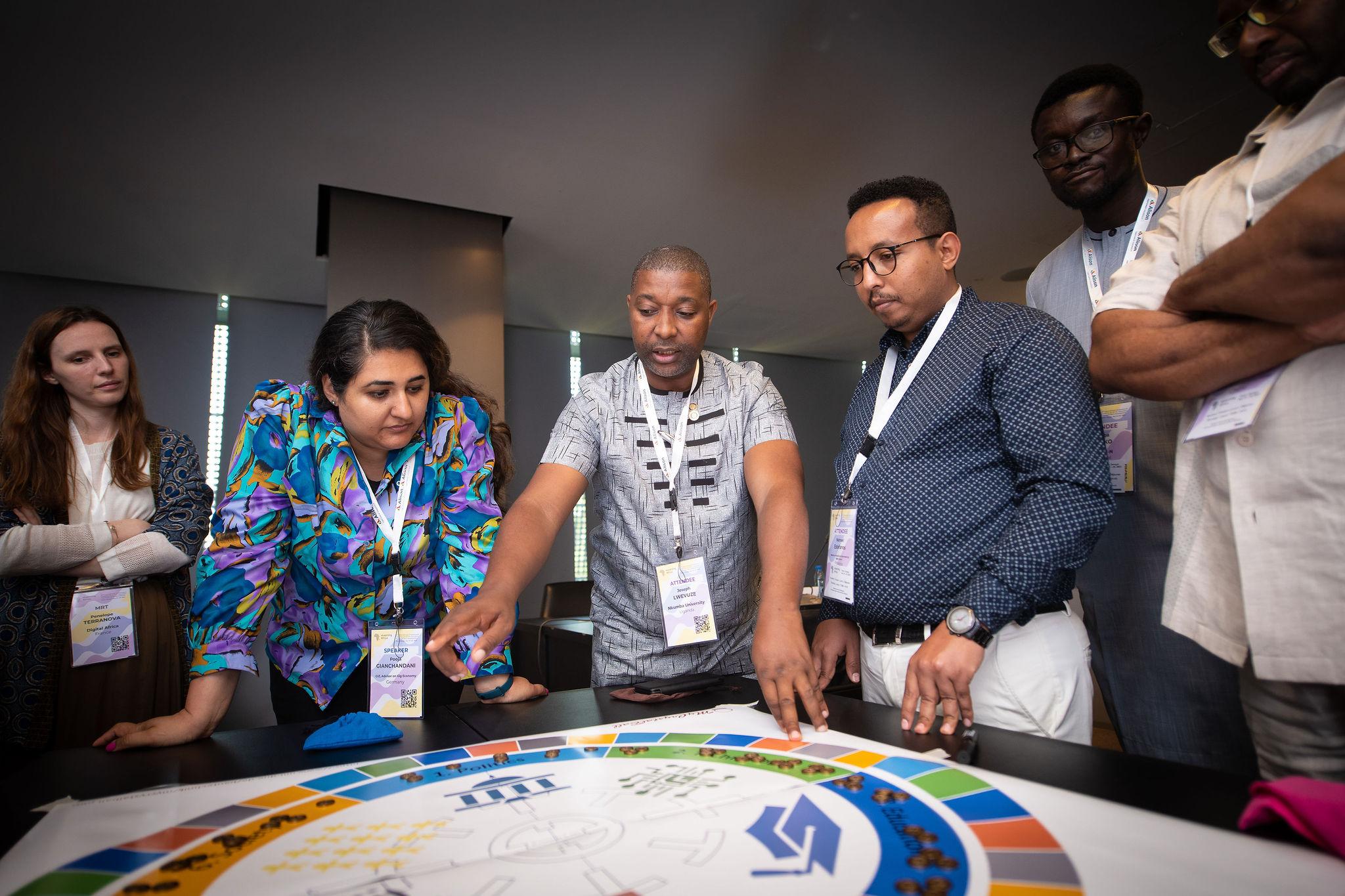
Enhancing the digital competency of teachers to navigate digital learning environments effectively is imperative. This involves not just understanding digital tools but also being able to foster learner engagement in online settings, ensuring that teachers are equipped to support students effectively in a digital learning environment. Moreover, the role of parents in supporting their children’s education in this new digital landscape cannot be overstated. Engaging parents to create a supportive learning environment at home is key to maximising the benefits of e-learning. This includes raising community awareness about the advantages of e-learning and encouraging active participation in these programmes.
What are the primary United Nations SDGs that you believe eLearning Africa addresses?
eLearning Africa addresses critical sustainable development challenges such as quality education, health, gender equality, economic growth, and environmental sustainability, contributing significantly to the advancement of the SDGs across the continent:
No Poverty (SDG 1):
By supporting education, training, and skills development, eLearning Africa equips individuals with the skills necessary for securing employment, fostering economic independence, and contributing to poverty reduction. Enhanced access to quality education enables people to improve their living conditions and escape the cycle of poverty.
LpGood Health and Well-being (SDG 3):
Through enhancing digital competencies, the initiative makes individuals more informed about health initiatives and practices. Access to education increases awareness and understanding of health issues, promoting better health outcomes and well-being. eLearning Africa’s programme always features sessions which focus on knowledge sharing tools and training programmes within the health sector.
Quality Education (SDG 4):
eLearning Africa directly contributes to ensuring inclusive and equitable quality education and promoting lifelong learning opportunities. It improves access to education for people in remote or underserved areas, enhancing learning outcomes across the continent.
Gender Equality (SDG 5):
The initiative supports equal access to education for girls and women, including in male-dominated fields such as STEM. By breaking down gender barriers, eLearning Africa fosters gender equality in education and the workforce.
Decent Work and Economic Growth (SDG 8):
By offering vocational training and skills development, it supports sustainable economic growth and employment. eLearning Africa equips individuals with market-relevant skills, fostering entrepreneurship and job creation.
Industry, Innovation, and Infrastructure (SDG 9):
eLearning Africa discusses industry-education collaboration, fostering partnerships for work-integrated learning. By aligning educational outcomes with labour market demands and leveraging public-private partnerships, the initiative showcases vocational training in the digital era. Additionally, eLearning Africa brings together key stakeholders to address the critical need for improved internet access and power infrastructure. It also supports the African edtech startup ecosystem and innovative educational access solutions across the continent.
Reduced Inequalities (SDG 10):
eLearning Africa works towards reducing inequalities by making education accessible to all, regardless of socio-economic background or location, helping to bridge the digital divide and ensuring that marginalised groups have access to educational resources.
Peace, Justice, and Strong Institutions (SDG 16):
By facilitating access to education, the initiative contributes to building informed societies that support democratic principles, the rule of law, and peaceful, inclusive communities.
Partnerships for the Goals (SDG 17):
eLearning Africa fosters partnerships across governments, private sector, civil society, and international organisations to support the development of digital education infrastructure and capabilities, crucial for achieving the SDGs.
While university education is essential for the advancement of society as it promotes economic, technological, and social change through research and innovation, skills development is increasingly becoming necessary in societies like Nigeria where there simply aren’t enough jobs. How involved is eLearning Africa with skills acquisition?
The conference features a wide-ranging programme that includes discussions on vocational training, skillset enhancement and development, and aligning education with labour market demands. By bringing together educators, industry leaders, policymakers, and technology experts, eLearning Africa facilitates critical dialogues on work-integrated learning opportunities, such as internships, apprenticeships, and cooperative education programmes. While the conference itself does not directly offer programmes, its role in highlighting successful models, innovative educational solutions, and effective partnerships significantly influences skills acquisition strategies across the continent, including Nigeria, fostering an environment that supports practical skills development for employability and entrepreneurship.

Have you found the undeveloped or underdeveloped nature of many African communities to be an impediment to implementing your e-learning strategy?
With regard to the perceived challenges of implementing e-learning strategies in undeveloped or underdeveloped African communities, it is important to reframe the situation by focusing on the unique opportunities these conditions present. Far from being merely an impediment, an underdeveloped community can actually serve as a catalyst for innovative, tailor-made solutions that leverage the continent’s leapfrogging potential.
In this context, leapfrogging refers to the ability of less developed societies to bypass certain stages of technology adoption. They can move directly to more advanced systems, taking advantage of evidence-based solutions without undergoing the intermediary steps and mistakes that more developed economies experienced. This is particularly relevant in the realm of digital and e-learning technologies. Africa has shown remarkable adeptness in this regard, especially in the rapid adoption of mobile technology and the internet, which has transformed access to information and learning resources.
Several factors contribute to this dynamic:
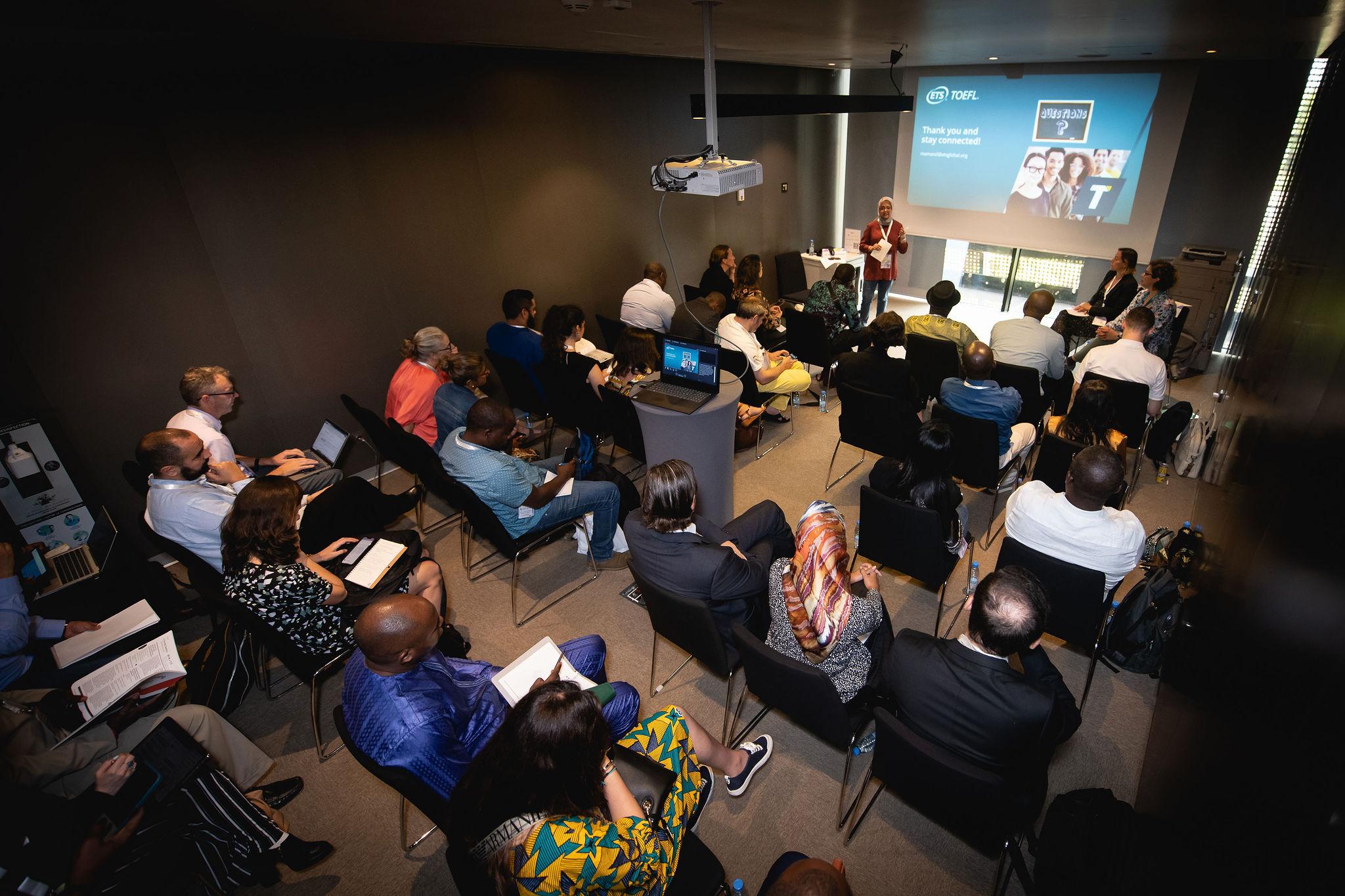
1. Mobile Penetration: The widespread availability of mobile phones has opened up new avenues for delivering educational content. Mobile learning platforms can reach learners in remote or rural areas, offering them courses, study materials, and interactive learning experiences.
2. Innovative Solutions: Faced with challenges such as limited internet connectivity, entrepreneurs and educators in Africa have developed innovative solutions. These include offline e-learning platforms, mobile apps that use minimal data, and solar-powered learning devices. Such innovations ensure that e-learning is not only accessible but also affordable for the masses.
3. Entrepreneurial Landscape: Africa’s vibrant startup landscape is playing a significant role in addressing educational challenges. From EdTech startups creating platforms for remote learning to initiatives focusing on STEM education for girls, the continent is a hotbed of innovation aimed at overcoming barriers to education.
So while the “undeveloped or underdeveloped” nature of many African communities presents certain challenges for implementing e-learning strategies, it also offers a unique set of opportunities. By leveraging mobile technology, fostering innovation, and focusing on localised and accessible content, Africa is not just overcoming these obstacles but is setting a global example of how to innovate in education for the digital age.
Has the level of interest of African governments in eLearning Africa been encouraging?
Yes, it has been highly encouraging. Over the past 18 years, eLearning Africa has fostered strong partnerships with African governments, collaborating closely to deliver the annual event. This consistent collaboration highlights the commitment of these governments to leverage e-learning as a pivotal tool for educational advancement across the continent. Additionally, each year, the event is enriched by a Ministerial Round Table, a significant component of the conference. This round table serves as a platform for ministers of education, as well as ministers of ICT and new technologies, to engage directly with the agenda of eLearning Africa. Their participation not only signifies the importance that African governments place on integrating e-learning into their educational strategies but also provides an opportunity for these leaders to discuss, share insights, and collaborate on innovative solutions to the challenges facing education in Africa today. This high level of governmental engagement demonstrates a clear recognition of the value of e-learning and a strong willingness to invest in the digital transformation of education across the continent.

Education is a sector which needs huge investment, and some African countries are doing better than others in this regard. Through your popular eLearning Africa conferences, have you been able to attract investment into the education sector of any African country?
Absolutely. The conferences serve as a pivotal meeting point for an extensive network of stakeholders, including global technology companies, international governmental organisations (IGOs), non-governmental organisations (NGOs), donor countries, representatives of non-African governments, foundations, and higher education institutions, to name a few. Many of these organisations join with the intent to collaborate and, importantly, to invest in the future of education across the continent.
The involvement of African organisations and the establishment of pan-African partnerships have been particularly noteworthy, as they bring localised insights and strategies that are crucial for the contextual implementation of e-learning solutions. These partnerships have led to the development of innovative educational technologies and sustainable, scalable models for e-learning, addressing the diverse needs of learners across Africa.

Our conferences are rich with success stories that underscore the powerful impact of these new partnerships and collaborations. These relationships have often translated into significant strides forward in implementing e-learning strategies tailored to the unique needs of different African countries. By fostering an environment conducive to dialogue and cooperation, eLearning Africa has played a critical role in mobilising resources, expertise, and funding essential for the advancement of education. The resulting initiatives not only support innovative educational technologies but also contribute to the development of sustainable, scalable models for e-learning that address both current and future educational challenges in Africa. This highlights our commitment to enhancing educational outcomes across the continent and highlights the tangible benefits of investment and collaboration in the education sector facilitated by our conferences.
What would success look like to Rebecca Stromeyer?
Success, in my view, encompasses much more than professional milestones; it is about achieving a harmonious blend of personal fulfillment and making a positive difference in the lives of others. Central to this concept is the pursuit of meaningful work – efforts that not only align with one’s values but also contribute to the broader societal good, imbuing one’s actions with purpose and satisfaction.
In the professional sphere, I define success not merely as individual accomplishments but as the ability to collaborate with others to launch initiatives that significantly impact people’s lives. Success is about leading within an organisation in a way that values and leverages the collective strengths of our team. We aim to create an environment that serves our clients while also uplifting and motivating our colleagues, thus making our workplace a source of inspiration and growth.
On a personal level, I define success as leading a content life enriched by deep and meaningful connections, possessing the resilience to overcome life’s challenges, including dealing with loss. It is about striking a delicate balance between pursuing professional goals and nurturing personal happiness, ensuring that my career contributes to, rather than detracts from, my personal life and the well-being of those I hold dear.
I see success not as a solo journey but a collaborative effort. It’s about recognising that whatever achievements I may reach, they are deeply intertwined with the support, insight, and contributions of others. In my view, this collective approach not only enriches the path to success but ensures that the journey is shared, and the achievements are more meaningful and fulfilling for everyone involved.
________________ Rebecca Stromeyer, a globally recognised leader in the field of digital learning, EdTech and international education, has been a driving force in shaping the landscape of online learning, education and training. As the Managing Director and Founder of ICWE GmbH and co-founder and co-owner of ICEF GmbH since 1991, her vision and leadership have been essential in establishing the events founded by these organisations as global leaders in their respective fields. With dual German and Australian nationality, Rebecca's diverse upbringing in Kuwait and various Middle Eastern countries, notably Lebanon, has deeply influenced her career. Her academic journey in Slavonic Studies, Comparative Literature, Business Administration, and Media Studies across Berlin, Moscow, and the UK, laid the groundwork for her future endeavors in multiculturalism and languages. Since 1988, Rebecca has expertly organised influential exhibition series across Europe, Latin America and Asia, focusing on languages and multiculturalism. Her director-level experience, spanning over three decades, encompasses organising international events and campaigns centered on ICT4D, online learning, languages, and media in the education sector. In 1996, Rebecca co-founded the "Languages & The Media" conference and exhibition, a leading event in localization and language transfer in the media. This conference has become a nexus for thought leaders, content owners, language service providers, technology developers, educators, researchers, and language professionals, shaping the future of media localization. Rebecca's groundbreaking work in eLearning is epitomised by her founding of eLearning Africa, the Pan-African Network, Conference and Exhibition on Digital Learning, Training and Skills Development in 2005, a cornerstone for digital learning in Africa, and her instrumental role in launching the OEB Global, the leading global cross sector conference series on technology supported learning and training, in 1995. Her initiatives have had a global impact, including the launch of ONLINE EDUCA MADRID and organising similar events in Iceland, Russia, Asia and the Arab world. Her advisory role extends to international organisations, and she has been an active member of various boards, including the International Council on Badges and Credentials and the Drucker Society. Her tenure as Vice-Chair of the Global Business School Network and her involvement with the Global Development Learning Network showcase her commitment to global education development. In 2012, Rebecca launched the eLearning Africa Report, solidifying her status as a key voice in ICT and digital learning. Her continued efforts are instrumental in shaping the future of education and skills development worldwide, driven by her vision of a more connected and educated global community. Contact details: Linkedin handle: https://www.linkedin.com/in/rebecca-stromeyer-abb4645/ Email: info@elearning-africa.com






















































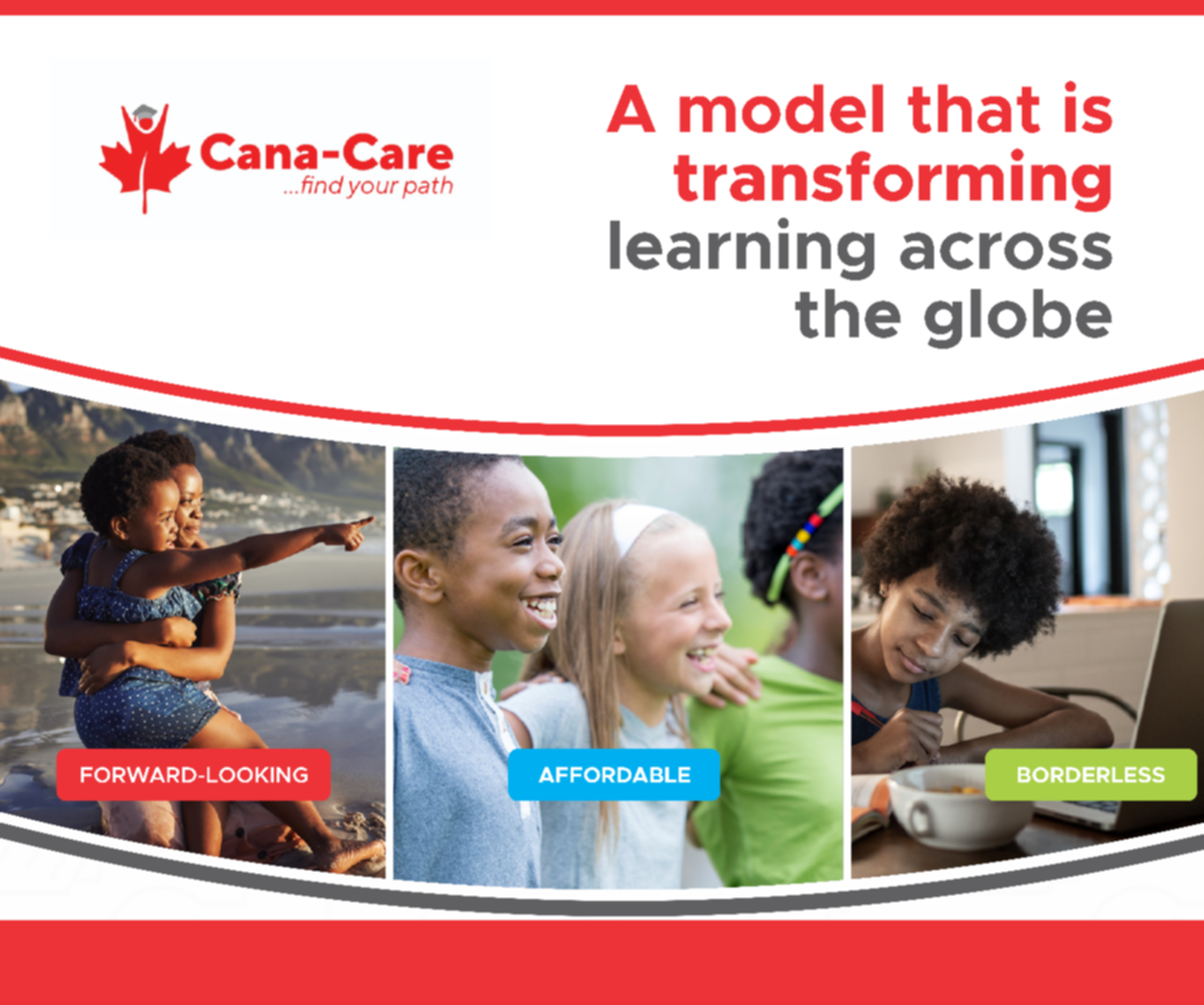

 EduTimes Africa, a product of Education Times Africa, is a magazine publication that aims to lend its support to close the yawning gap in Africa's educational development.
EduTimes Africa, a product of Education Times Africa, is a magazine publication that aims to lend its support to close the yawning gap in Africa's educational development.


